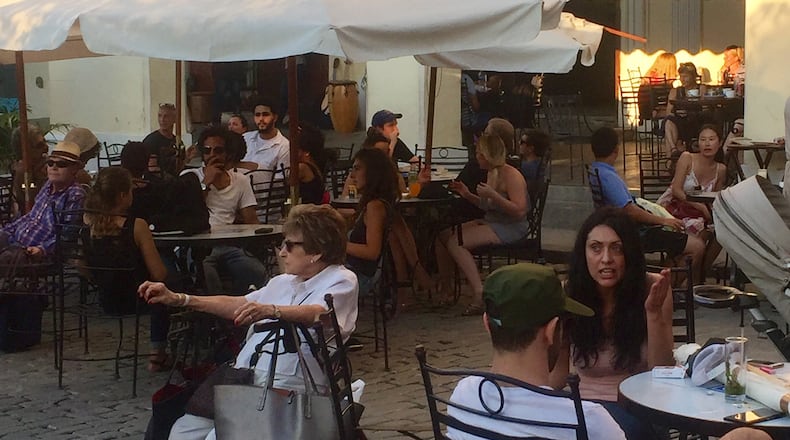An updated U.S. list of Cuban companies that Americans are prohibited from doing business with because of their links to the Cuban military includes two Cuban rum brands — Ron Varadero and Ron Caney — as well as the soft drink brands Tropicola, Cachito, Jupina and Nahita.
But does that mean that U.S. travelers to Cuba really have to watch which brands of rum and soft drinks they drink during their trips to the island?
The idea of the list, which the Trump administration issued last week, is to keep cash away from enterprises owned or controlled by Cuban military enterprises, but the inclusion of the beverage companies raised plenty of questions about whether American travelers needed to watch what they were drinking while in Cuba.
The Department of the Treasury has now clarified that the new regulations apply only to direct financial transactions with the 180 enterprises on the State Department’s restricted list.
“Americans may still consume those soft drinks and rums” — as long as they don’t buy them directly from the companies on the list, Treasury says. They can buy a Tropicola from a street vendor, for example, and they won’t have to tell a bartender: “No Varadero or Caney rum, please.”
Before Treasury’s clarification, the banned beverages stirred up a social media storm.
Among those joining in was Ben Rhodes, former Obama foreign policy adviser and one of the U.S. negotiators in secret talks that led to the U.S.-Cuba rapprochement. He questioned why the Trump administration was so concerned about soft drinks when “it won’t restrict what kind of assault weapons Americans can buy.”
While Treasury’s clarification helps, what American travelers can and cannot do in Cuba under the new rules is still complicated.
They can legally purchase a rum and coke at many Cuban hotels, but if a hotel is one of the 83 hotels that are run by Gaviota or Habaguanex, two tourism brands controlled by the military, it’s off limits for not only drinks but also lodging.
The two rums on the restricted list are both distilled in Santiago de Cuba at the old Bacardi rum factory. (After the 1959 Cuban Revolution, rum production was nationalized and distilleries owned by the Bacardi family and others were seized.) But Santiago de Cuba rum and other liqueurs are produced at the same factory and they’re not on the restricted list. Cuba’s most famous rum, Havana Club, isn’t on the list either.
The State Department didn’t respond to a query asking for clarification.
“The State Department has left the door open for revisions and additions to the list down the road,” said Miami lawyer Pedro Freyre.
Just because Uncle Sam isn’t checking travelers’ drinking choices doesn’t mean they shouldn’t be vigilant about who they are doing business with in Cuba.
“Travelers are expected to consult the Cuba Restricted List to ensure they are in compliance as they make their travel arrangements and during their trips,” Treasury said.
Besides the beverage companies, there are also stores and shops on the list that travelers might not readily associate with the Cuban military.
Among them are Coral Negro jewelery stores; the Jardin Wagner florist; Casa de Abanico, which sells hand-painted fans; Tienda El Navegante, a purveyor of old and new maps and nautical charts; and Soldadito del Plomo, an Old Havana store that sells toy soldiers. It also offers miniature figures of Hemingway, Jose Marti and Che Guevara that are popular as souvenirs.
“To me this is emblematic of the silliness of some of the restricted entities — getting down to the level of a lead soldiers store,” said Freyre, whose clients include companies that do business with Cuba.
Many of the Old Havana stores on the list were launched by the Office of the Historian of the City, which has overseen renovation of many colonial buildings and wanted a shopping experience that reflected Havana’s history.
A number of hotels, restaurants and shops in Old Havana formerly were operated under the Habaguanex brand by the Office of the Historian, which used the revenue to fund projects in the historic center. But Habaguanex was transferred last year to GAESA, the holding company controlled by the Cuban military.
———
(Staff writers Nora Gamez Torres and Patricia Mazzei contributed to this report.)
About the Author

